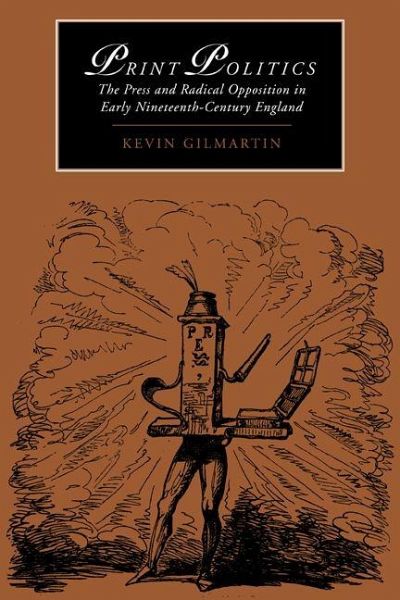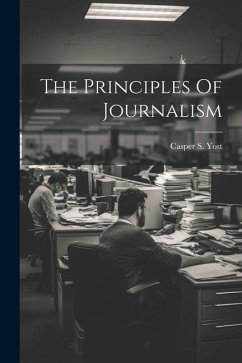
Print Politics
The Press and Radical Opposition in Early Nineteenth-Century England
Herausgeber: Butler, Marilyn; Chandler, James

PAYBACK Punkte
29 °P sammeln!
Print Politics is the first literary study of the culture of the popular radical movement for parliamentary reform in the early decades of the nineteenth century. The period was characterized by popular agitation and repressive political measures including trials for seditious and blasphemous libel. Kevin Gilmartin explores the styles and strategies of radical opposition in the periodical press, and in the public culture of the time. He argues that writers and editors including William Cobbett, T. J. Wooler, Richard Carlile, John Wade, and Leigh Hunt committed themselves to a complex, flexible...
Print Politics is the first literary study of the culture of the popular radical movement for parliamentary reform in the early decades of the nineteenth century. The period was characterized by popular agitation and repressive political measures including trials for seditious and blasphemous libel. Kevin Gilmartin explores the styles and strategies of radical opposition in the periodical press, and in the public culture of the time. He argues that writers and editors including William Cobbett, T. J. Wooler, Richard Carlile, John Wade, and Leigh Hunt committed themselves to a complex, flexible, and often contradictory project of independent political opposition. They sought to maintain a political resistance uncompromised by the influence of a corrupt "system" even while addressing and imitating its practices to further their oppositional ends.














